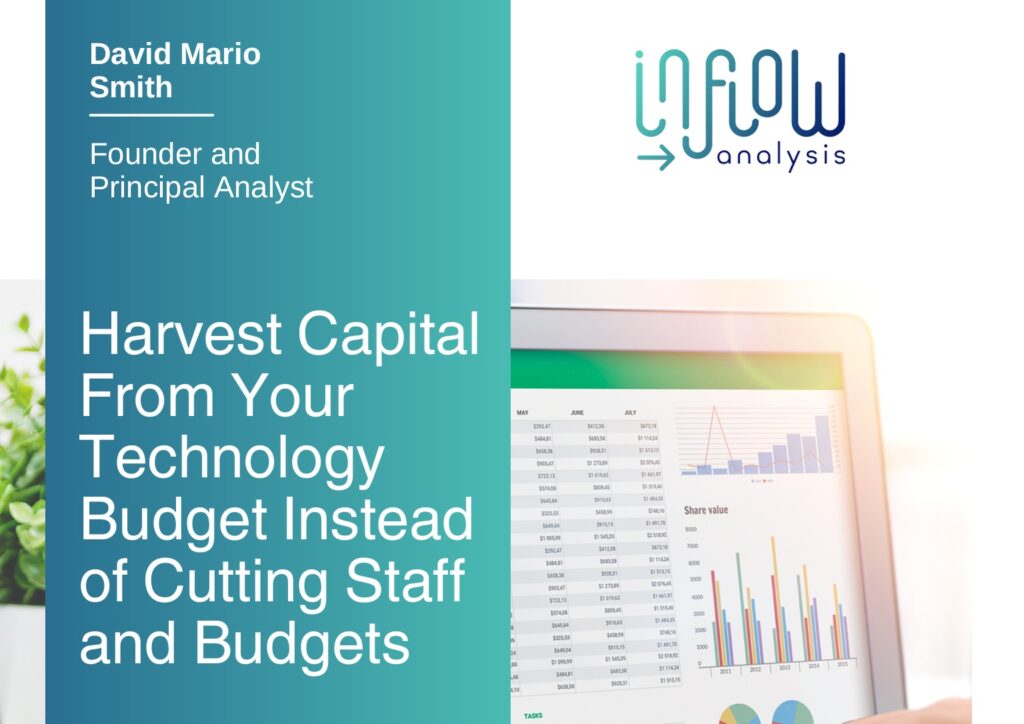In today’s competitive business landscape and challenging economic climate, enterprises are facing difficult decisions regarding their balance sheet. Enterprises are caught in a tough spot, needing to demonstrate profitability (EBITDA) while simultaneously grappling with stagnant revenue growth. Traditional methods for closing profitability gaps, such as layoffs and budget cuts, can have a negative impact on company culture. However, there is a more innovative and effective approach to achieving an appealing P&L: harvesting capital from technology budgets:
- Enterprise technology categories, such as CRM, cloud and data services, billing, software, network storage, business process outsourcing, telecommunications services, and data center technology, represent anywhere from eight to fifteen percent of revenue for medium and large enterprises – a significant pool of expenses that, if properly reduced, can result in meaningful savings of hundreds of millions of dollars
- Over-spending on enterprise technology is common, with companies paying, on average, 79 percent higher technology costs than market conditions require
- In contrast to layoffs and budget cuts, harvesting operating capital from technology budgets can improve an enterprise’s profitability without negatively impacting company culture or operational capacity
- Employing a data-driven process to analyze spend, identify opportunities for savings, and re-bid contracts via reverse auctions can be more than twice as effective for reducing cost than traditional procurement methods like RFPs and one-on-one vendor negotiation

This white paper includes real-world examples of companies using procurement auctions to drive outcomes like cost savings, EBITDA improvement, and enterprise value growth.
“Our research has shown that overpaying for technology is common among enterprises. In today’s economic climate, where many businesses are considering slashing headcount and budgets to achieve profit margin, inspecting and correcting excess spending, and instead using those monies to improve productivity, invest in new strategies, and increase EBITDA. This report will help businesses understand these procurement initiatives’ dynamics and how activities like reverse auctions can profoundly impact financial and operational performance.” —David Mario Smith, founder and principal analyst for Inflow Analysis.
By utilizing data-driven methods, enterprises can optimize and claw back operating capital from their multimillion-dollar technology budget, reducing expenses without resorting to drastic measures like budget cuts and layoffs. In this article, we will explore the value proposition of harvesting capital from technology budgets, its benefits, and how it can enhance an enterprise’s overall competitiveness.
Download the full white paper here
About AIQ:
For over 20 years, the AIQ team has helped clients increase their enterprise value and operating cash by materially reducing IT costs. AIQ is backed by Boston-based private equity firm Copley Equity Partners. AIQ specializes in creating industry-leading savings of technology-centric IT services in over a hundred categories, such as cloud, SaaS, digitization, and big data, through the application of its unique tools, expertise, and business processes. Its patented technology and business process platform ensures maximum savings for clients, while measurably improving quality and service levels from IT suppliers. https://www.aiq.co/
About Copley Equity Partners:
Established in 2012, Copley is a private investment firm with offices in Denver and Boston. Copley partners with growing, lower-middle market private companies. The firm invests out of an evergreen, single-family office capital base and is comfortable in both majority and minority ownership positions. Copley’s patient and flexible capital base allows the firm to provide each portfolio company significant support post investment. www.copleyequity.com.
Media Contact:
Contact:
Glenn Goldberg
Parallel Communications, Inc.
X: @Parallel_PR
